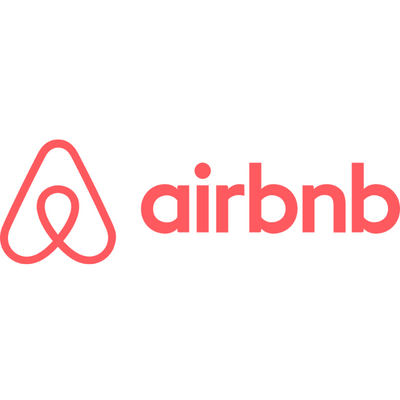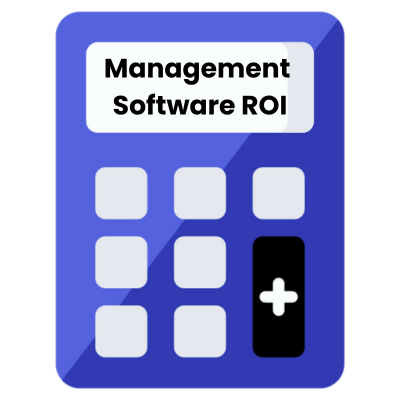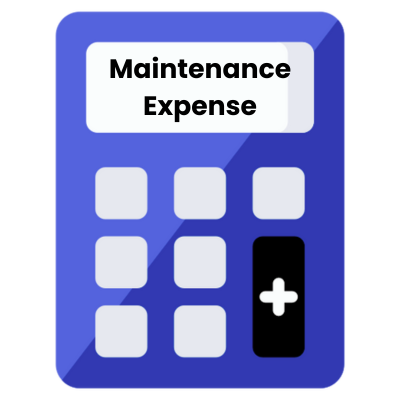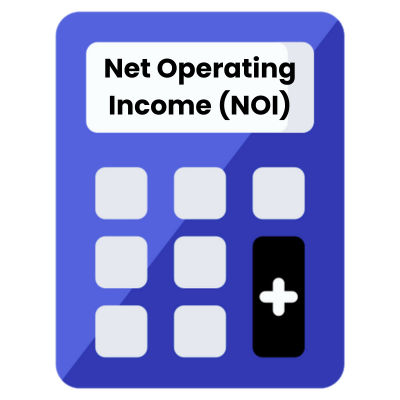Last Updated: April 2024

Vacation rental property investing involves the acquisition of properties in popular travel or vacation destinations, with the intent of renting them out on a short-term or long-term basis to travelers and vacationers. This investment strategy capitalizes on the booming tourism industry and the increasing demand for home-like accommodations, offering potentially high returns but also requiring active management and marketing.
On This Page
- What is Vacation Rental Investing?
- 7 Ways to Invest in a Vacation Rental
- Developing a Vacation Rental Property
- How to Buy a Vacation Rental Property
- Top Vacation Rental Investing Tools
- Vacation Rental Investing Calculators
- Pros and Cons of Investing in Vacation Rentals
- Vacation Rentals vs Other Rental Real Estate Investments
What is Vacation Rental Investing?
Vacation Rental Investing Definition
Vacation rental property investing refers to the acquisition of residential properties in travel destinations or areas of leisure interest with the primary intention of renting them out on a short-term basis to vacationers or travelers. Unlike traditional long-term rentals, these properties cater to guests seeking temporary accommodations, offering an alternative to hotels and resorts.
Vacation Rental Investing Explained
Vacation rental property investing involves buying homes or apartments in popular travel spots and renting them out to tourists for short stays. Think of properties you might find on platforms like Airbnb or Vrbo. Instead of having a long-term tenant, owners host a revolving door of guests, often at premium nightly rates, especially during peak seasons. This kind of investment not only provides a revenue stream but can also serve as a personal vacation spot for the owner.
7 Ways to Invest in a Vacation Rental
Direct Ownership Vacation Rental
Direct ownership involves directly purchasing a vacation property, allowing the investor to have full control over its management, pricing, and guest experience. This traditional method is favored by those who prefer hands-on involvement and seek to reap the entire revenue generated from rentals. Properties acquired this way can also serve dual purposes: as a personal getaway and a source of income.
Developing a Vacation Rental Property
This method involves buying vacant land or a fixer-upper in a popular vacation spot and then constructing or renovating it to serve as a rental. By tailoring the property to cater to the vacation market from the outset, investors can create bespoke experiences for guests, potentially increasing rental appeal and revenue. However, this approach often requires a significant upfront investment and expertise in property development.
Vacation Rental Companies
Several large vacation rental companies have redefined the dynamics of this asset class. Their size and influence not only shape market trends but also impact rental standards and practices nationwide. Investing in them, where possible, can be a great way to gain exposure to this asset class.
BRRRR a Vacation Rental Property
BRRRR stands for Buy, Rehab, Rent, Refinance, and Repeat. In the context of vacation rentals, this strategy involves purchasing a property, renovating it to enhance its appeal and value, renting it out for premium rates, then refinancing to potentially pull out equity for future investments. This strategy allows for rapid portfolio expansion and can be particularly lucrative in high-demand vacation areas.
Turnkey Vacation Rentals
Turnkey vacation rentals are properties that are ready to rent out from day one. Investors purchase these fully-furnished and often already-rented properties from companies or individuals that specialize in preparing homes for the vacation market. This approach reduces the effort and time needed to get started, making it ideal for those looking for a more hands-off investment.
Vacation Rental Syndication
Syndication involves pooling resources with other investors to buy a vacation rental property. This method allows individuals to invest in prime vacation spots that might be out of reach individually. The income and expenses are shared, and it’s essential for all parties involved to have a clear agreement on the management and eventual division of revenues.
Vacation Rental Stocks
Rather than purchasing actual properties, investors can buy stocks in companies that focus on the vacation rental industry, like platforms or property management firms. This method offers a way to tap into the industry’s growth without the responsibilities of direct property ownership. Stocks represent a more liquid asset compared to real estate, but they’re also subject to market volatility.
How to Buy a Vacation Rental Property
Purchasing a vacation rental property presents a unique opportunity to combine an income generating investment property with the allure of travel destinations. As the tourism industry continues to flourish, understanding the intricacies of buying such properties becomes vital for potential investors.
Vacation Rental Purchase Process
- Self Assessment & Investment Objectives: Determine your financial goals, understanding of rental real estate finance, personal preferences to ensure your vacation rental investment aligns with your broader objectives.
- Assembling a Real Estate Team: Connect with professionals experienced in the vacation rental niche, including realtors, attorneys, and accountants.
- Tourism Market and Location Analysis: Research tourist trends, peak seasons, and popular attractions to identify prime locations for your vacation rental investment.
- Making Offers and Negotiating Purchase Terms: Navigate the purchasing process with knowledge of local market values and negotiation strategies tailored for vacation rentals.
- Property Inspections, Appraisals, and Due Diligence: Engage in thorough scrutiny of the property, including understanding its value and ensuring it meets all legal and safety requirements for rental purposes.
- Finalizing the Property Purchase (Closing): Complete the acquisition process with necessary paperwork, financing, and formalities specific to vacation rental properties.
Vacation Rental Marketing & Property Management
- Furnishing and Preparing the Property for Guests: Equip your vacation rental with functional and aesthetically pleasing furnishings tailored to the preferences of your target market.
- Listing and Marketing Your Property: Utilize popular vacation rental platforms and localized marketing strategies to maximize visibility and bookings for your investment.
- Pricing Strategies for Peak and Off-Peak Seasons: Implement dynamic pricing techniques that adjust rates based on seasonal demand to optimize revenue throughout the year.
- Providing Excellent Guest Experience and Gathering Reviews: Ensure stellar guest satisfaction by offering top-notch amenities and services, then harness positive feedback to enhance your property’s reputation. A vacation rental management software system can help streamline this.
- Property Maintenance and Upkeep: Regularly inspect and maintain your vacation rental property to ensure it remains in optimal condition and delivers a consistent guest experience.
Financial Management and Analysis
- Understanding Revenue, Expenses, and Cash Flow: Thoroughly assess your vacation rental’s income streams against operational costs to determine the property’s cash flow dynamics.
- Calculating Return on Investment: Evaluate the profitability of your vacation rental by analyzing the annual rental income in relation to the property’s total acquisition and operational costs. Utilizing online rental property calculators can help with these calcualations.
- Tax Considerations and Benefits: Familiarize yourself with tax incentives and deductions available for vacation rental property owners to optimize your financial returns.
Scaling and Diversification in Vacation Rental Investing
- Strategies for Expanding Your Investment Portfolio: To amplify returns, consider acquiring additional vacation rental properties in trending tourist destinations.
- Diversifying Your Portfolio with Different Property Types and Locations: Enhance your portfolio’s resilience by investing in a mix of vacation rentals, from beachfront condos to mountain cabins, across diverse geographical regions.
- Exit Strategies: Regularly evaluate your vacation rental portfolio’s performance and consider selling underperforming assets to reinvest in properties with higher potential returns.
Top Vacation Rental Investing Tools
The #1 Rental Property Newsletter
Once a month, we send out an exclusive Rental Property Market Update with top stories, current mortgage rates, building products, and more. No spam and unsubscribe anytime.


Vacation Rental Investing Calculators
Pros and Cons of Investing in Vacation Rentals
There are many factors to consider when determining whether or not to invest in rental real estate, specifically vacation rentals. The following is a comprehensive list of the pros and cons you need to know before investing in vacation rental properties.
Pros of Vacation Rental Investing
- Greater Returns – Vacation rentals have been delivering investors some of the greatest returns in the rental real estate industry. This is mostly caused by a combination of strong renter demand and high booking rates in desirable markets. Some investors have even sold or forgone apartment investing, and solely pursued vacation rentals for the strong returns.
- Enjoy A Second Residence – Vacation rentals allow you to not only financially benefit from your investment, but also physically enjoy it for a relaxing vacation. This is especially true if it is a nice single family rental (SFR) property. Prior to online vacation rental platforms such as VRBO, vacation properties were reserved only for the wealthy and most would sit vacant year round.
- Less Reliance on Long Term Tenants – Since your tenants are only intended to be there short term, you don’t have to worry about committing to a potential long term problem tenant who cannot pay rent or is destructive. Regular tenant turnover ensures your quality of tenant and cash flow is diversified.
- Easier Access To More Customers – When you put your listing up on Airbnb or any other vacation rental platform, anyone from anywhere in the world can now become your customer. Some take this even further and run their vacation rental property business completely virtual from hundreds or thousands of miles away by using lockboxes, cameras, and other management tools.
- Payments and Screening is Done For You – Most vacation rental companies collect payment and identification documents upfront prior to booking a reservation. This means that your payment is secured and you have greater assurance that your guest is legitimate; among other things too such as profile reviews.
Cons of Vacation Rental Investing
- Depend on Vacation Rental Platform for Customers – While multifamily apartments can always solicit new tenants with an old school “For Rent” sign, most vacation rentals depend on websites such as AirBnB and VRBO. These platforms also charge a fee for every booking, potentially eating into your profit.
- Greater Risk for Damage or Issues – Because of the higher volume of people passing through your property, there is a greater likelihood of things getting worn out, theft/breakage or encountering a problem tenant. Some property associations have went as far as banning vacation rentals at buildings due to short term guests causing property damage and noise complaints.
- More Effort to Manage – Managing a successful vacation rental can be like a second job. Due to more frequent customers (i.e. daily, weekly, etc.), short term rentals require more collecting of payments, more bookings, and more property maintenance to stay on top of. Instead of doing this once every couple of years, it can now become monthly, weekly, or even daily.
- Potentially Higher Operating Costs – Vacation rentals are usually expected to be delivered fully furnished and fully equipped with amenities such as Wifi, TV service, towels and beddings, kitchen appliances like microwaves, kitchen utensils, and access to a pool, gym, or other applicable property amenities.
- Lack of Income Certainty – This may not be true in some hot vacation rental markets, but short term rentals can be susceptible to seasonal vacancy, last minute cancellations, and market saturation or excess competition.
Search Rental Real Estate
Try searching out site for hundreds of rental property topics ranging from property management, investor tool reviews, investment research, and more.
Vacation Rentals vs Other Rental Real Estate Investments
Vacation rental properties offer unique investment opportunities distinct from traditional real estate assets like multifamily apartment units. When considering investment avenues, it’s crucial to understand how vacation rentals compare to other popular rental real estate classes.
| Criteria | Vacation Rentals | Single Family | Multifamily | Commercial Real Estate |
|---|---|---|---|---|
| Scale of Investment | Typically moderate, location-dependent | Lower to moderate, based on market | High, depending on unit count | Very high, depending on size/type |
| Management Intensity | High due to frequent guest turnover | Moderate with long-term tenants | Moderate to high | Moderate, lease-dependent |
| Liquidity | Moderate, market-dependent | Moderate, based on market conditions | Moderate, based on market conditions | Lower, longer selling process |
| RIsk Profile | Moderate to high (seasonal demand) | Low to moderate | Low to moderate | Moderate to high |
| Potential ROI | High, based on occupancy & location | Moderate, based on appreciation & rent | Moderate to high, based on rent & appreciation | Varies widely based on property & lease terms |
| Tenant Duration | Short-term (days to weeks) | Long-term (months to years) | Long-term (months to years) | Long-term (years, based on lease) |
| Market Sensitivity | High (sensitive to tourism trends) | Moderate, housing market-dependent | Moderate, housing market-dependent | Moderate, business cycle-dependent |
More Real Estate Investing Asset Types
About the Author


Ryan Nelson
I’m an investor, real estate developer, and property manager with hands-on experience in all types of real estate from single family homes up to hundreds of thousands of square feet of commercial real estate. RentalRealEstate is my mission to create the ultimate real estate investor platform for expert resources, reviews and tools. Learn more about my story.
Disclaimer: The information provided on this website does not, and is not intended to, constitute legal and/or financial advice. As such, all information, content, and materials available on this site are for general informational purposes only. Please review our Editorial Standards for more info.




















